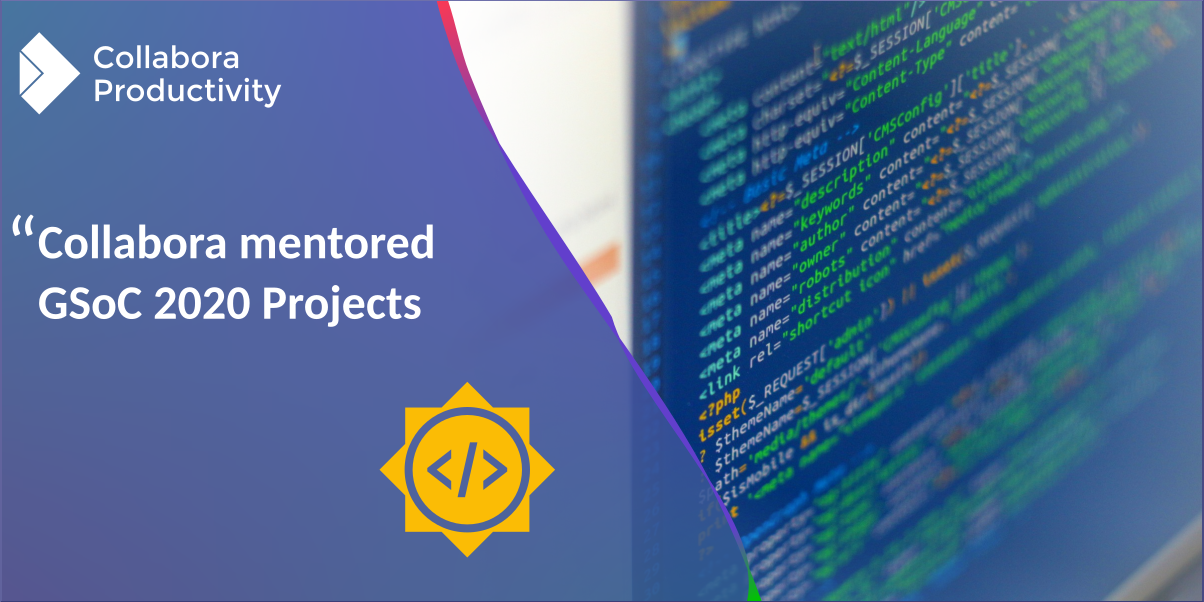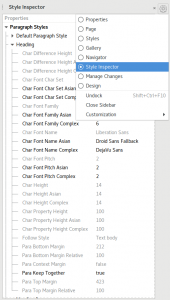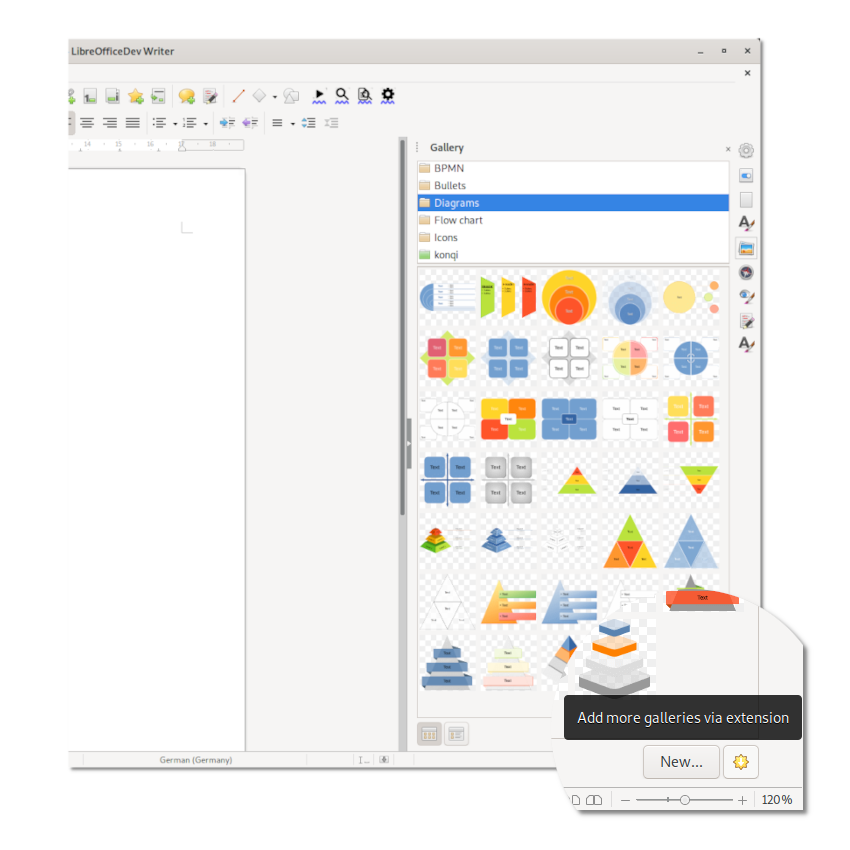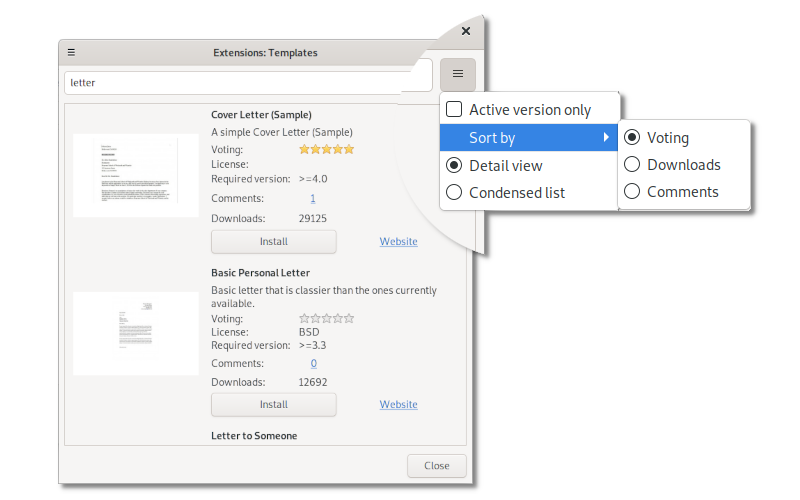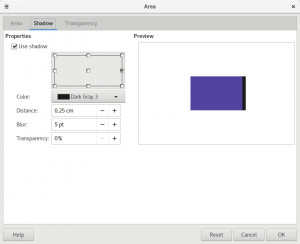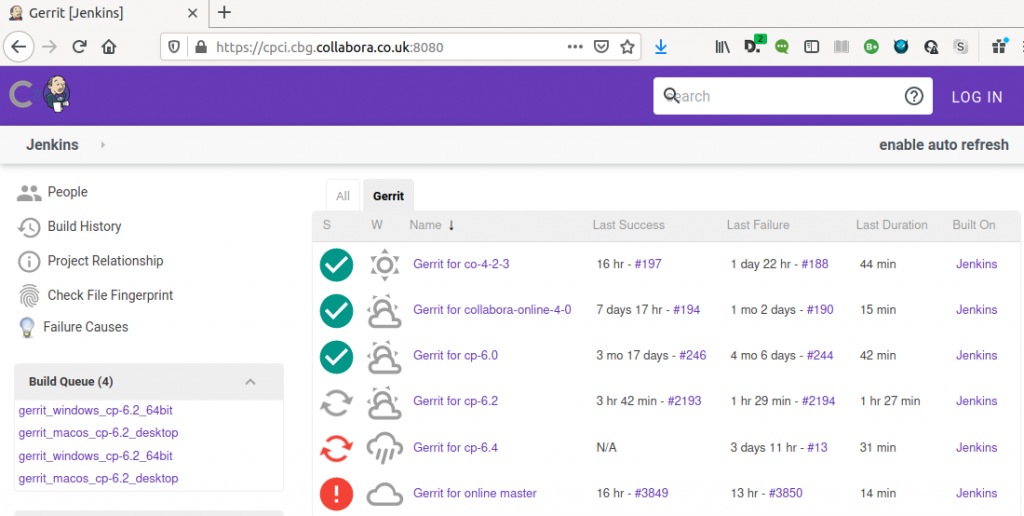Collabora, happy to be a major contributor to LibreOffice technology, is also driving development in the world of free software for online productivity solutions.
What is the situation in 2021, how can you choose what best meets your needs? Read more about CODE (Collabora Online Development Edition), Collabora Online, and LibreOffice online!
 CODE – Collabora Online Development Edition
CODE – Collabora Online Development Edition
- CODE is the online version that is under constant development, so not in a stable state
- It is perfect for home use/small teams
- It is however not suitable for production environments
- Builds are released on average once a month and announced on our news pages
- CODE is built around the Collabora Office core
- Documentation on getting CODE set up, is available at the CODE-page
- It is available as a docker image
- Getting involved with development is easy – and appreciated: goto collaboraonline at github.
 Collabora Online
Collabora Online
- The production-ready and stable edition of Collabora Online
- with Long Term Support, an SLA, and signed security updates
- with access to our Customer and Partner portal; advanced technical documentation and support
- Collabora also provides tailored solutions
- Built around the Collabora Office core
- Partners and customers receive frequent updates
- Online trials in ownCloud, Nextcloud, and Seafile
- Enterprises can get Collabora Online in their favorite file share and sync software via one of our partners
- Cloud and Hosting providers can offer Collabora Online to their customers by becoming a partner
- Getting involved with development is easy on collaboraonline at github.
 LibreOffice online
LibreOffice online
- LibreOffice online development was set up at the LibreOffice project by Collabora in 2014
- As a source code project, LibreOffice in the cloud aimed at growing wider contributions
- This InfoGraph shows Collabora’s contributions to the development.
- To ensure future investment Collabora moved the development to GitHub in 2020
- More on this and other reasons in the FAQ
- Update TDF’s board voted for (delayed) Atticization (policy). After the agreed deadline the ESC decided that the first criteria to keep it out of the Attic was not met.
- The source will still be mirrored at LibreOffice cgit, and Collabora continues to contribute substantially to the underlying LibreOffice technology alongside the community.
Pricing, Education & NGO’s, Success stories
- EDU and NGO organizations can take advantage of special prices.
- Do read some of the testimonials from the many customers and partners.
Download our Whitepapers for further information

White Paper
“Usage differences of CODE and Collabora Online”
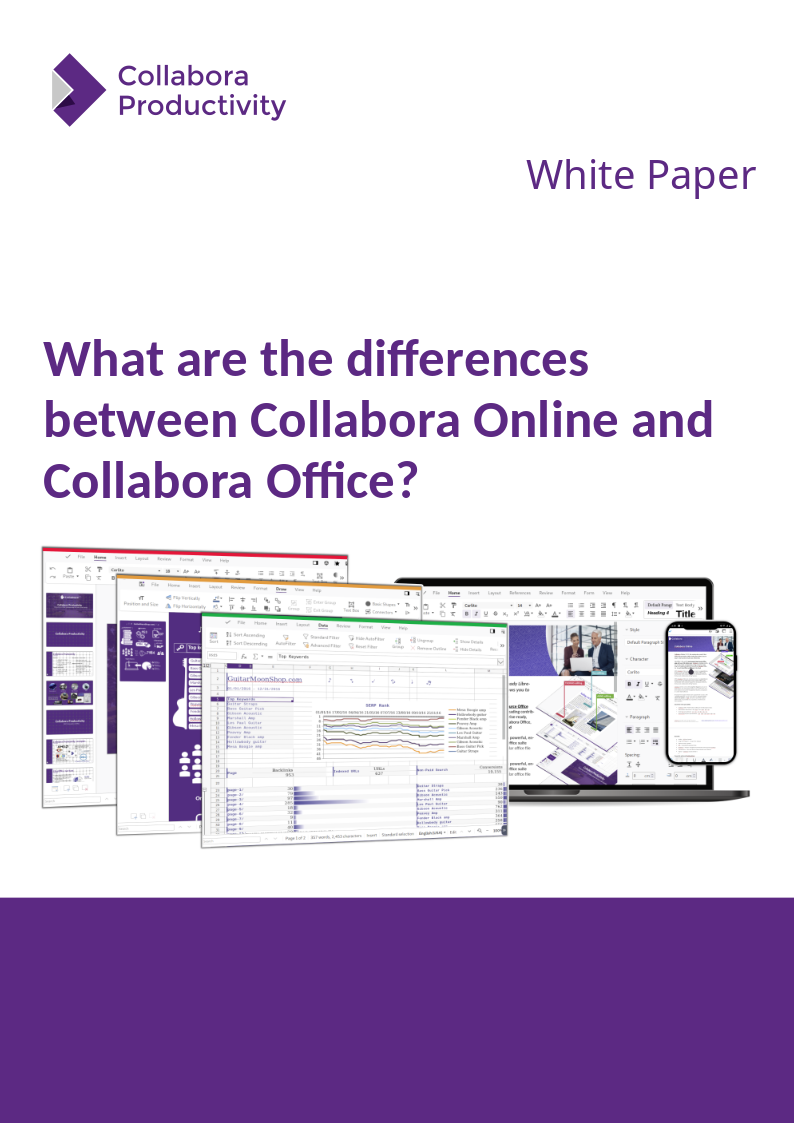
White Paper
“What are the differences between Collabora Online and
Collabora Office?”
Background information
Collabora, a leading contributor to the LibreOffice codebase and community, is the driving force behind putting LibreOffice in the cloud. Initial development started back in 2011 and four years later, in 2015, CODE (Collabora Online Development Edition) was created, allowing people to check out LibreOffice in the cloud for the very first time. Shortly after this, the first production-ready Collabora Online was released.
We encourage people to contribute. While Collabora has done more than 95% of code commits so far, we are glad that since the move of collaboraonline to github more people are getting involved. Maybe you can join too?
